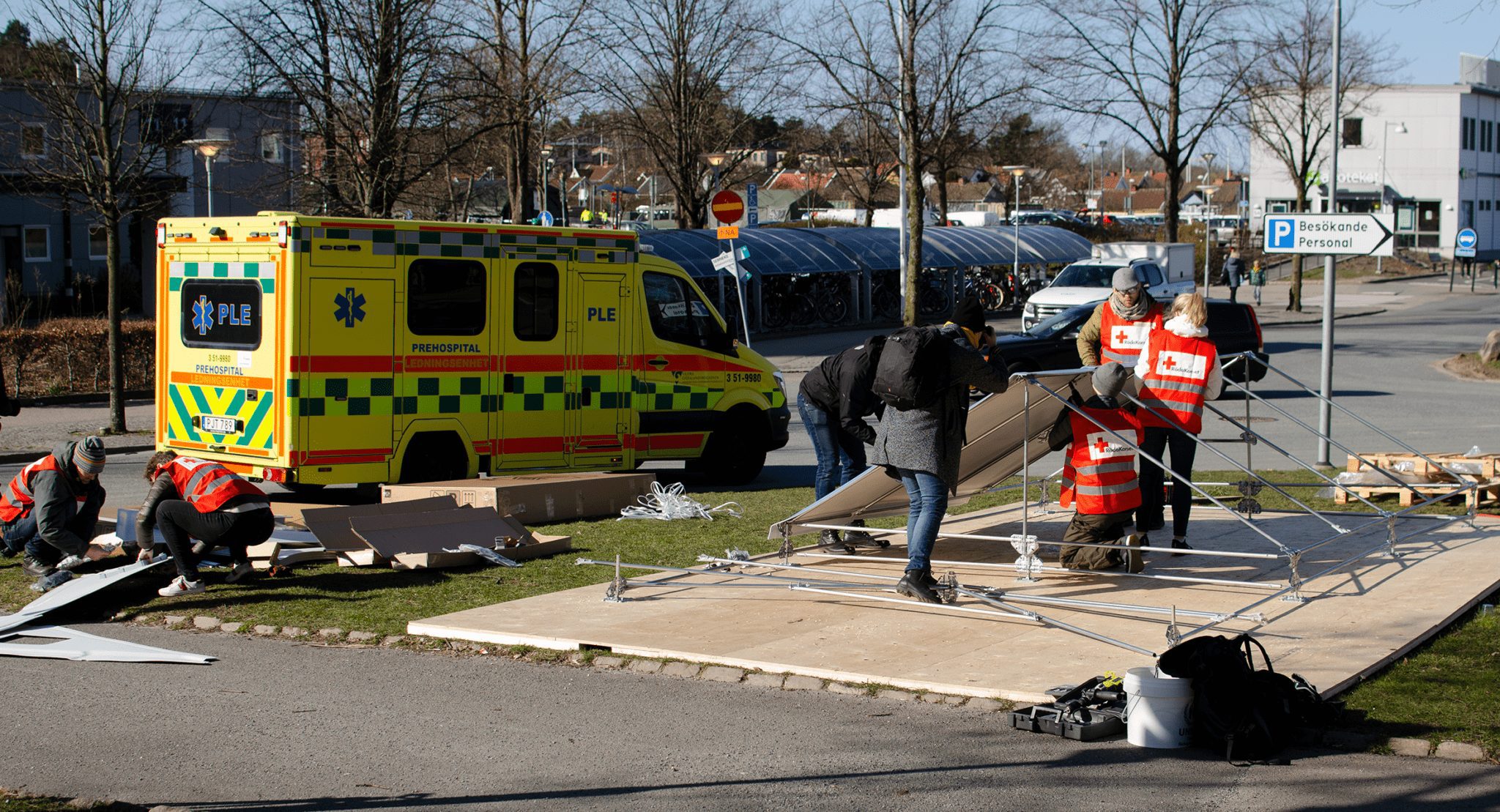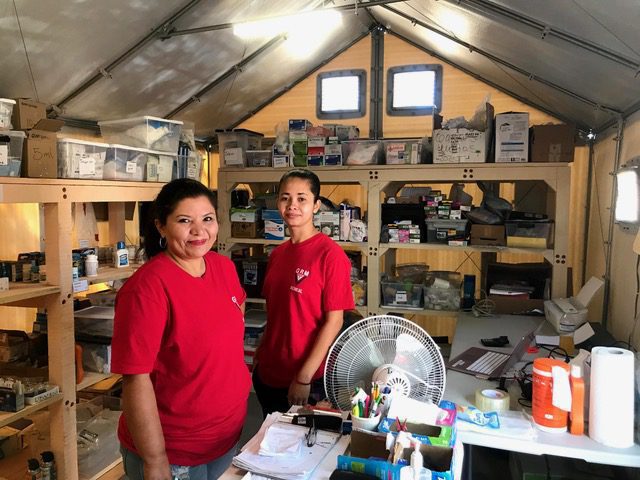Humanitarian organisations are implementing RHUs in their coronavirus outbreak responses around the world. The modular design of the structures can be altered to suit different requirements and has proven suitable as a temporary health infrastructure in various contexts.
The UN Refugee Agency, UNHCR, is setting up hundreds of Better Shelter units in Brazil, Zambia, Pakistan, Colombia, Niger and Jordan where, among other things, they will be used as isolation rooms for confirmed and suspected cases of COVID-19.
In Colombia, UNHCR staff, local organisations and the Colombian emergency services and military are setting up 30 Better Shelters at the Erasmo Meoz University Hospital in Cúcuta, near the border to Venezuela. They will be used as a medical facility for COVID-19 patients from Colombia and Venezuela. Over 1 million Venezuelan refugees and migrants live in Colombia. Displaced people – especially the elderly and those with health conditions – often have limited access to health services and sanitation and may therefore be at greater risk of contracting viruses and disease.
In Brazil, UNHCR has donated 200 Better Shelter units as well as mattresses and hygiene kits to a new health facility, called Protection and Care Area (APC), in the Roraima state. The facility will have a capacity for 1200 COVID-19 patients.
The Swedish Red Cross has turned a Better Shelter unit into a COVID-19 information hub outside a hospital in Sweden.
For order inquiries, contact our team




